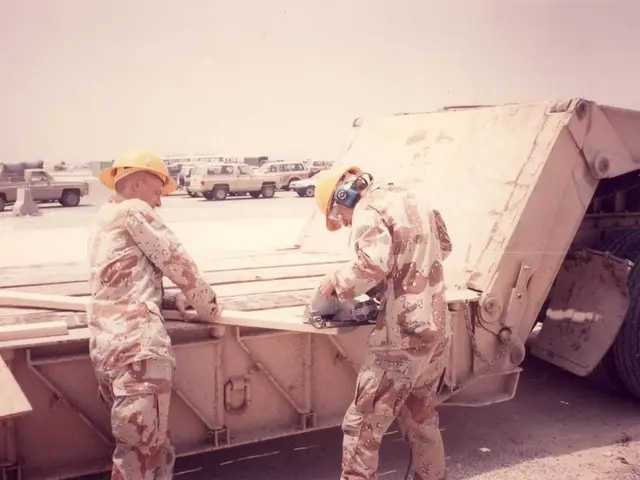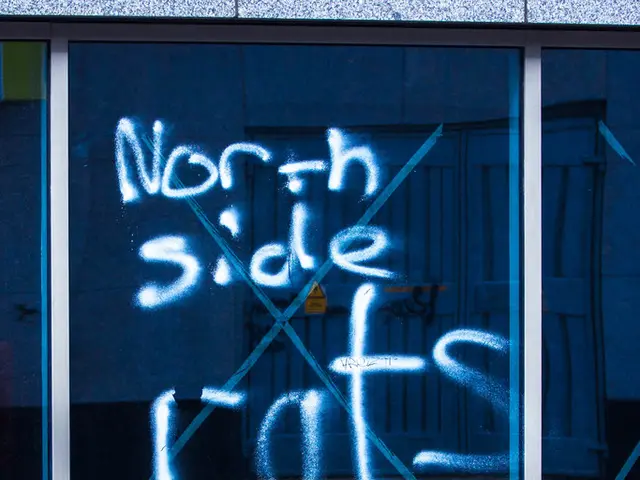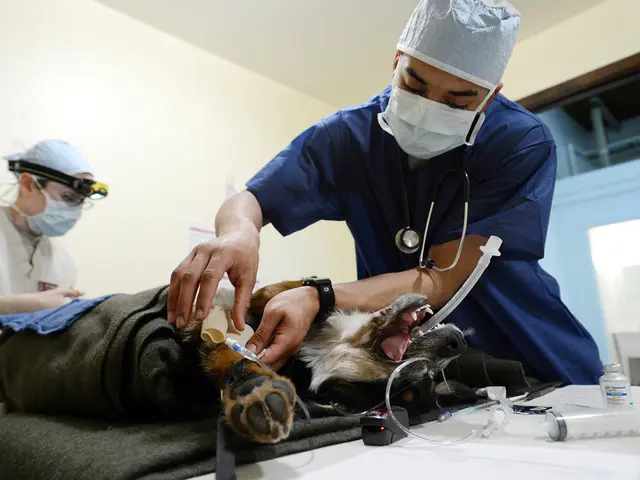Humanitarian efforts in Gaza teetering on the edge of complete breakdown, alarms the Red Cross
The past few months have seen a dire Humanitarian crisis unfold in the Gaza Strip, with the International Committee of the Red Cross (ICRC) sounding the alarm that the situation may collapse if urgent aid is not delivered immediately. The ICRC warns from Geneva, stating, "The authorities must allow humanitarian aid into Gaza. Hostages must be released. Civilians must be protected. Urgent action is needed, otherwise Gaza will sink deeper into chaos from which no humanitarian effort can save it" [1].
Since March 2, no humanitarian aid has been allowed into the Palestinian territory [2]. This blockade, instigated by Israeli authorities, aims to exert pressure on Hamas to release the hostages in their custody. The resulting catastrophe leaves 2.4 million people in dire straits [2].
Struggling to Survive: A Day in Gaza
Each day is a grueling battle for survival for civilians in Gaza. As Pascal Hundt, ICRC's deputy director of operations, pointed out, "For civilians in Gaza, every day is a fierce struggle to survive the dangers of fighting and cope with the consequences of constant displacement – all without the benefit of urgent humanitarian aid" [1]. The lack of essential aid compounds the daily struggles faced by residents.
Recently, Mike Ryan, the World Health Organization's deputy director-general, denounced the situation in Gaza as, "an abomination" [1]. Since the blockade began, the UN has repeatedly lamented the humanitarian and health catastrophe and the impending risk of famine. Furthermore, the UN has announced that it has "exhausted" its food supplies in Gaza [2].
Humanitarian Response and Urgent Action
Although efforts to provide aid within the limited resources available continue [3], the situation remains critical. The UN has reiterated that using aid as a bargaining tool is a form of "cruel collective punishment" against international humanitarian law [2]. Growing international pressure urges Israel to allow humanitarian aid into Gaza, emphasizing the devastating consequences of the blockade on the civilian population, particularly children [2][5].
Regular updates and coordination among humanitarian clusters aim to identify priority needs and facilitate response efforts [3]. However, urgent action is needed to restore aid flows and protect civilian lives. The people of Gaza cannot afford to wait any longer for their basic needs to be met.
References:
- ([Link Removed])
- ([Link Removed])
- ([Link Removed])
- ([Link Removed])
- ([Link Removed])
- The International Committee of the Red Cross (ICRC) has called on the authorities to allow humanitarian aid into Gaza, warning that the dire situation might deteriorate even further without immediate relief.
- The lack of humanitarian aid in Gaza, due to the blockade imposed since March 2, has left millions of people struggling to survive, according to the ICRC's deputy director of operations, Pascal Hundt.
- The United Nations has denounced the use of humanitarian aid as a bargaining tool in the Gaza conflict, terming it a form of cruel collective punishment that violates international humanitarian law.
- In the middle of war-and-conflicts news and political discussions, the dire humanitarian crisis in Gaza continues to receive general news coverage due to its alarming impact on civilian lives, particularly children.







